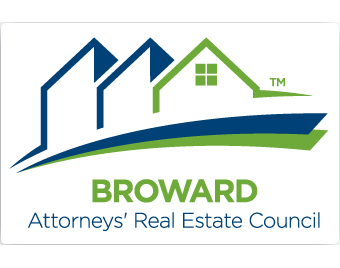Estate administration is complicated, and it can be even more complicated when a person passes away without a will. A last will and testament is a core estate planning document. It allows a person to control what happens to their property and their assets after they pass away. You may be wondering: What happens if someone dies without a will in Florida? The short answer is that they are deemed “intestate,” and their property and assets will be distributed based on state law. In this article, our Fort Lauderdale estate planning attorney provides a more comprehensive guide to what happens when someone passes away without a valid will in Florida.
Intestate Succession: Defined
As defined by the Legal Information Institute, intestate succession is simply a legal term used to describe the “process that comes into play when someone passes away without leaving behind a valid will.” As stated previously, an estate without a will is handled under the applicable state law. The intestate succession laws vary from jurisdiction to jurisdiction. Though, they are generally designed to prioritize close family members. Under Florida law (Florida Statutes § 732.101), “any part of the estate of a decedent not effectively disposed of by will passes to the decedent’s heirs as prescribed” by the state’s legal code.
Intestate Succession Rules Override Personal Wishes Without Valid Will
Every adult should have a will in place. It serves as the cornerstone legal document for any estate plan in Florida. Other estate planning tools—including things like trusts and beneficiary designations—can also be used to pass property and assets to heirs. However, any assets that are not covered by a will (or another estate planning vehicle) will become subject to the intestate succession rules set up by Florida law. The rules are rigid: They do not take a person’s actual wishes into account—meaning a person who does not draft a will loses control over their own property.
A Comprehensive Overview of Intestate Succession Laws in Florida
How does intestate succession actually work in Florida? The answer depends on several different factors—with the most notable being the family structure of the deceased. Here is an overview of intestate succession in Florida in seven of the most common scenarios:
What type of rights do unmarried long-term partners or close friends have under Florida’s intestate succession laws? Unfortunately, for people in this situation, the answer is none. Indeed, it is crucial to note that intestate succession does not consider unrelated parties as valid heirs. To pass your estate to a non-immediate family member, or a dear friend, you need to articulate your desires in a legally recognized will or trust. Without this, those wishes are invisible in the eyes of the law,
An Attorney Can Help You Navigate Estate Administration Without a Will
The absence of a legally valid will can complicate the process of estate administration. It is a situation where the expertise of a top Florida probate and estate administration attorney becomes invaluable. Your Florida lawyer can help you navigate through the complex laws of intestate succession and estate administration. Among other things, this includes gathering assets, notifying creditors, identifying and locating legal heirs, interpreting the provisions of state intestate succession laws, assessing the value of the deceased’s estate, handling debt settlement, and facilitating the proper distribution of assets. With professional knowledge, a Florida attorney can simplify what can be a confusing and daunting process.
Get Help From Our Florida Estate Planning Lawyer
At The Law Offices of Odelia Goldberg, our Fort Lauderdale estate planning lawyer has the skills and experience to help you and your family put the best possible plan in place. If you have any questions about intestate succession in Florida, we are here as a legal resource. Contact our legal team today to set up your completely confidential initial appointment. From our office location in Fort Lauderdale, we provide estate planning representation throughout Southeast Florida.







The information on this website is for general information purposes only. Nothing on this site should be taken as legal advice for any individual case or situation.
This information is not intended to create, and receipt or viewing does not constitute, an attorney-client relationship.
© 2025 The Law Offices of Odelia Goldberg. All Rights Reserved. Privacy Policy. Web Development by IWD Marketing